
Sex trafficking is human trafficking for the purpose of sexual exploitation. It has been called a form of modern slavery because of the way victims are forced into sexual acts non-consensually, in a form of sexual slavery. Perpetrators of the crime are called sex traffickers or pimps—people who manipulate victims to engage in various forms of commercial sex with paying customers. Sex traffickers use force, fraud, and coercion as they recruit, transport, and provide their victims as prostitutes. Sometimes victims are brought into a situation of dependency on their trafficker(s), financially or emotionally. Every aspect of sex trafficking is considered a crime, from acquisition to transportation and exploitation of victims. This includes any sexual exploitation of adults or minors, including child sex tourism (CST) and domestic minor sex trafficking (DMST).

The United Kingdom (UK) is a destination country for men, women, and children primarily from Africa, Asia, and Eastern Europe who are subjected to human trafficking for the purposes of sexual slavery and forced labour, including domestic servitude. It is ranked as a "Tier 1" country by the US Department of State, which issues an annual report on human trafficking. "Tier 1" countries are those whose governments fully comply with The Trafficking Victims Protection Act's minimum standards for the elimination of trafficking. The TVPA is a federal statute of the United States. It is believed that some victims, including minors from the UK, are also trafficked within the country. It is also believed that migrant workers are trafficked to the UK for forced labour in agriculture, construction, food processing, domestic servitude, and food service. Source countries for trafficking victims in the UK include the United Arab Emirates, Lithuania, Russia, Albania, Ukraine, Malaysia, Thailand, the People's Republic of China (P.R.C.), Nigeria, and Ghana. Precise details about the extent of human trafficking within the UK are not available, and many have questioned the validity of some of the more widely quoted figures. In 2020, the US State Department estimated that there were 13,000 trafficking victims in the UK.
Afghanistan is one of the source, transit, and destination country for men, women, and children who are subjected to trafficking in persons, specifically forced labor and forced prostitution. Trafficking within Afghanistan is more prevalent than transnational trafficking, and the majority of victims are children. In 2005 the Afghan Independent Human Rights Commission (AIHRC) reported 150 child trafficking cases to other states. Afghan boys and girls are trafficked within the country and into Iran, Pakistan and India as well as Persian gulf Arab states, where they live as slaves and are forced to prostitution and forced labor in brick kilns, carpet-making factories, and domestic service. In some cases the boys and girls were used for organ trafficking. Forced begging is a growing problem in Afghanistan; Mafia groups organize professional begging rings. Afghan boys are subjected to forced prostitution and forced labor in the drug smuggling industry in Pakistan and Iran. Afghan women and girls are subjected to forced prostitution, arranged and forced marriages—including those in which husbands force their wives into prostitution—and involuntary domestic servitude in Pakistan and Iran, and possibly India. Non-governmental organizations (NGOs) report that over the past year, increasing numbers of boys were trafficked internally. Some families knowingly sell their children for forced prostitution, including for bacha bazi - a practice combining sexual slavery and child prostitution, through which wealthy men use harems of young boys for social and sexual entertainment. Other families send their children with brokers to gain employment. Many of these children end up in forced labor, particularly in Pakistani carpet factories. NGOs indicate that families sometimes make cost-benefit analyses regarding how much debt they can incur based on their tradable family members.
Sex trafficking in Thailand is human trafficking for the purpose of sexual exploitation and slavery that occurs in the Kingdom of Thailand. Thailand is a country of origin, destination, and transit for sex trafficking. The sexual exploitation of children in Thailand is a problem. In Thailand, close to 40,000 children under the age of 16 are believed to be in the sex trade, working in clubs, bars, and brothels.
Brunei is a destination, and to a lesser extent, a source and transit country for men and women who are subjected to trafficking in persons, specifically forced labor and forced prostitution. Men and women from Indonesia, Malaysia, the Philippines, Pakistan, India, Bangladesh, China, and Thailand migrate to Brunei for domestic or other low-skilled labor but sometimes face conditions of involuntary servitude upon arrival. There are over 88,000 migrant workers in Brunei, some of whom face debt bondage, non-payment of wages, passport confiscation, confinement to the home, and contract switching – factors that may contribute to trafficking. There were credible reports of nationals from South Asian countries subjected to nonpayment of wages and debt bondage in Brunei for up to two years to pay back foreign recruitment agents. Some of the 25,000 female domestic workers in Brunei were required to work exceptionally long hours without being granted a day for rest, creating an environment consistent with involuntary servitude. There are reports of women forced into prostitution in Brunei, and reports that women arrested for prostitution attest to having been victims of trafficking. Brunei is a transit country for trafficking victims in Malaysia, including Filipinas, who are brought to Brunei for work permit re-authorization before being returned to Malaysia.
Sex trafficking in China is human trafficking for the purpose of sexual exploitation and slavery that occurs in the People's Republic of China. It is a country of origin, destination, and transit for sexually trafficked persons.
Sex trafficking in Myanmar is human trafficking for the purpose of sexual exploitation and slavery that occurs in the Republic of the Union of Myanmar. Myanmar is primarily a source and transit country for sexually trafficked persons.
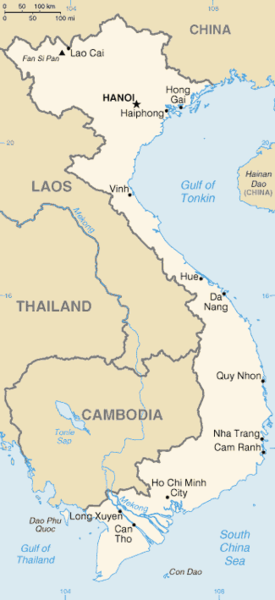
Sex trafficking in Vietnam is human trafficking for the purpose of sexual exploitation and slavery that occurs in the Socialist Republic of Vietnam. Vietnam is a source and, to a lesser extent, destination country for sexually trafficked persons.
Sex trafficking in Laos is human trafficking for the purpose of sexual exploitation and slavery that occurs in the Lao People's Democratic Republic. Laos is primarily an origin country for sexually trafficked persons.
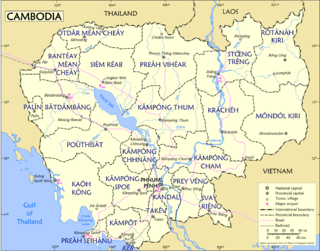
Sex trafficking in Cambodia is human trafficking for the purpose of sexual exploitation and slavery that occurs in the Kingdom of Cambodia. Cambodia is a country of origin, destination and transit for sex trafficked persons.
Sex trafficking in Singapore is human trafficking for the purpose of sexual exploitation and slavery that occurs in the Republic of Singapore. Singapore is primarily a destination country for sexually trafficked persons.
Sex trafficking in the Philippines is human trafficking for the purpose of sexual exploitation and slavery that occurs in the Republic of the Philippines. The Philippines is a country of origin and, to a lesser extent, a destination and transit for sexually trafficked persons.

Sex trafficking in Hong Kong is human trafficking for the purpose of sexual exploitation and slavery that occurs in Hong Kong. Hong Kong is a city of origin, destination, and transit for sexually trafficked persons.
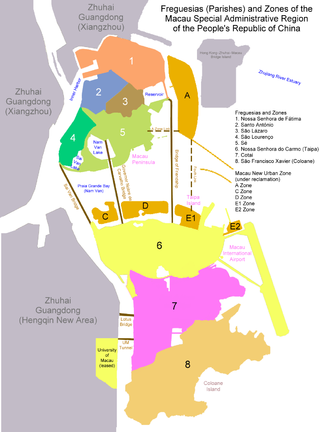
Sex trafficking in Macau is human trafficking for the purpose of sexual exploitation and slavery that occurs in the Macao Special Administrative Region of the People's Republic of China. Macau is predominantly a destination country for sexually trafficked persons.
Sex trafficking in Japan is human trafficking for the purpose of sexual exploitation and slavery that occurs in the country. Japan is a country of origin, destination, and transit for sexually trafficked persons.

Sex trafficking in South Korea is human trafficking for the purpose of sexual exploitation and slavery that occurs in the Republic of Korea. South Korea is a country of origin, destination, and transit for sexually trafficked persons. Sex trafficking victims in the country are from South Korea and foreigners.

Sex trafficking in Mongolia is human trafficking for the purpose of sexual exploitation and slavery that occurs in the country. Mongolia is a source, transit and destination country for sexually trafficked persons.

Sex trafficking in Kazakhstan is human trafficking for the purpose of sexual exploitation and slavery that occurs in the Republic of Kazakhstan.
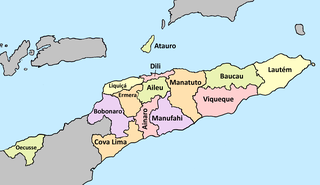
Sex trafficking in East Timor is human trafficking for the purpose of sexual exploitation and slavery that occurs in the Democratic Republic of Timor-Leste.
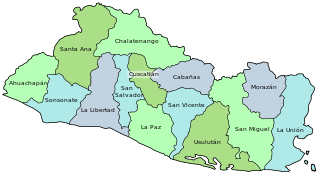
Sex trafficking in El Salvador is human trafficking for the purpose of sexual exploitation and slavery that occurs in the Republic of El Salvador. It is a country of origin, transit, and destination for sexually trafficked persons.











